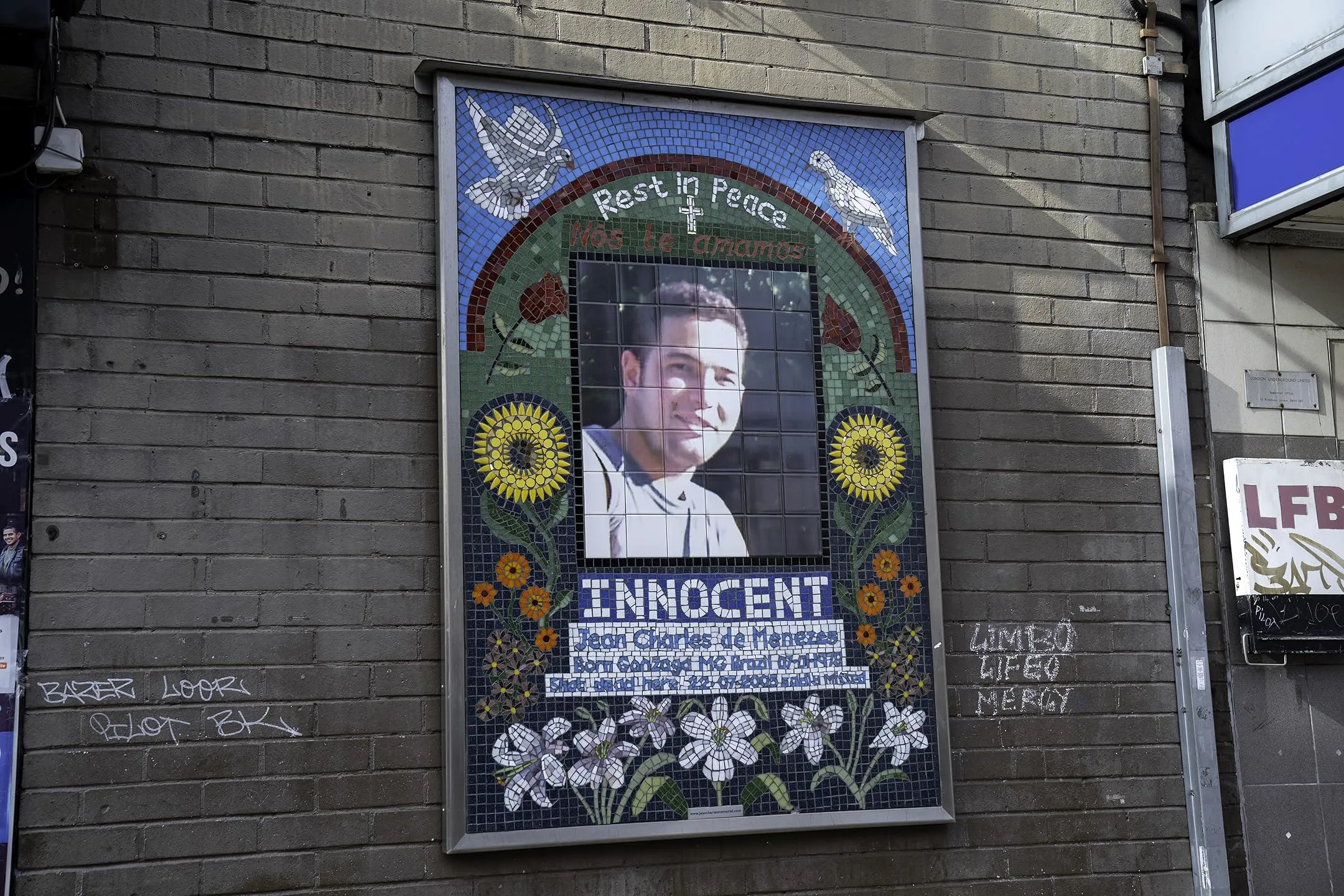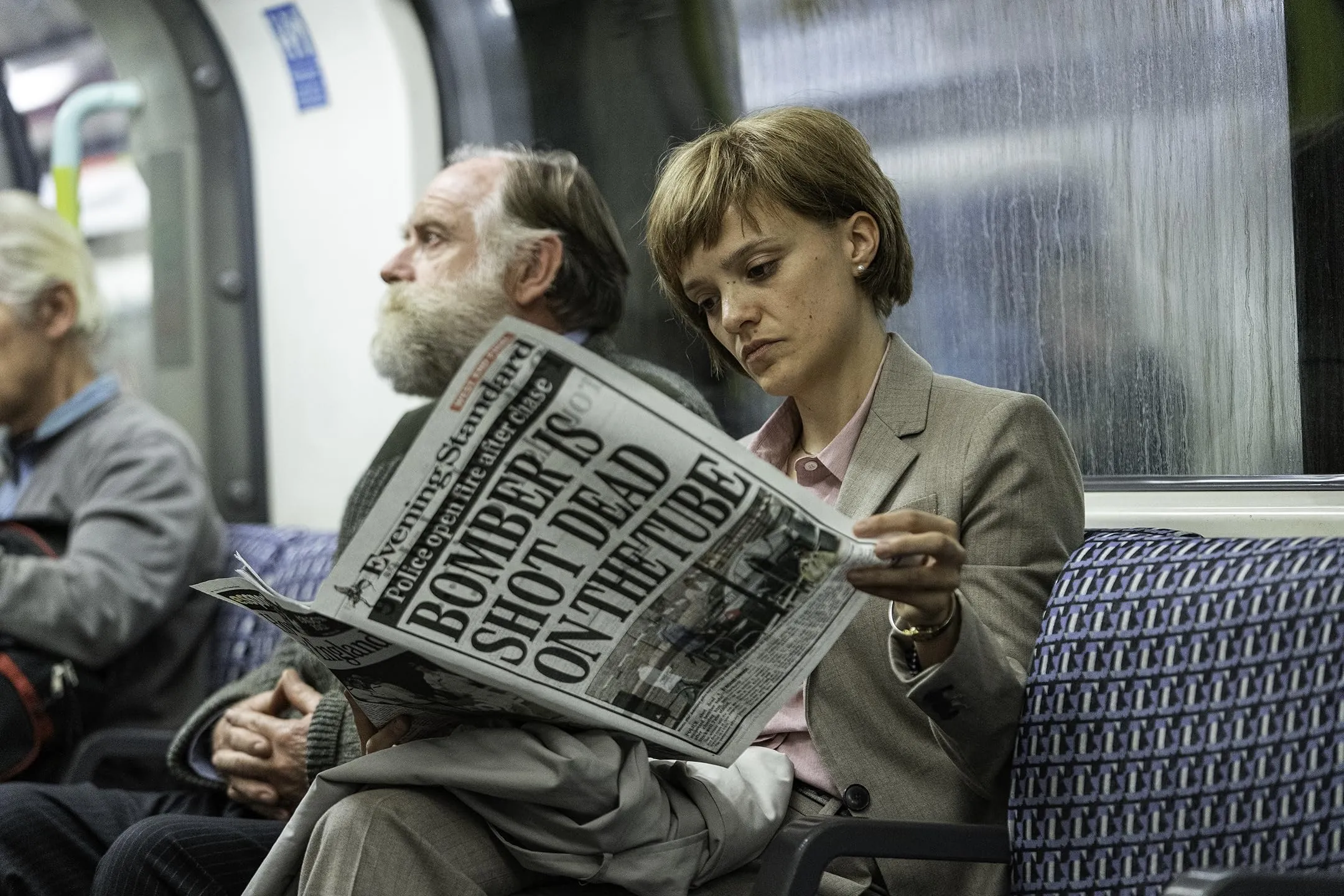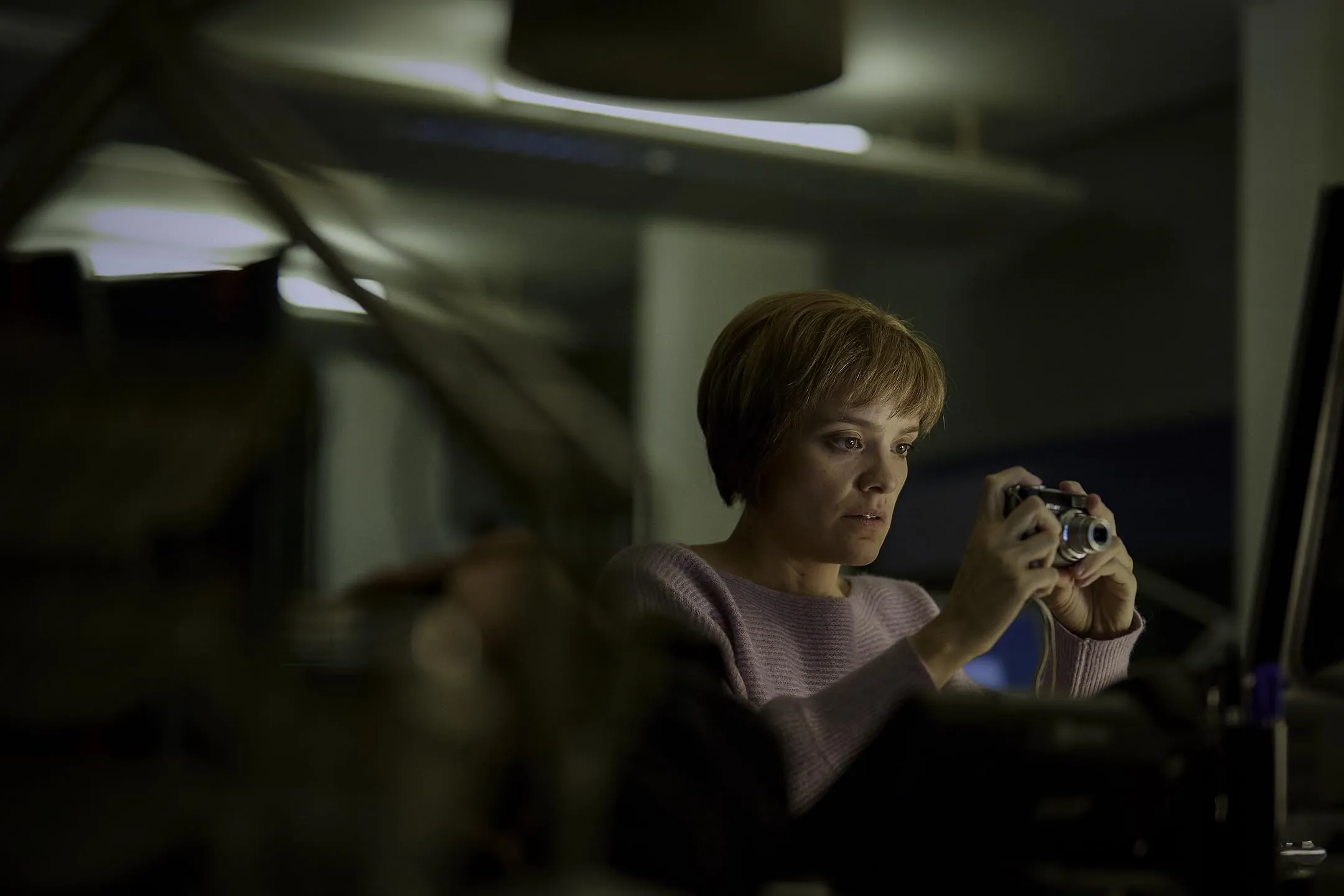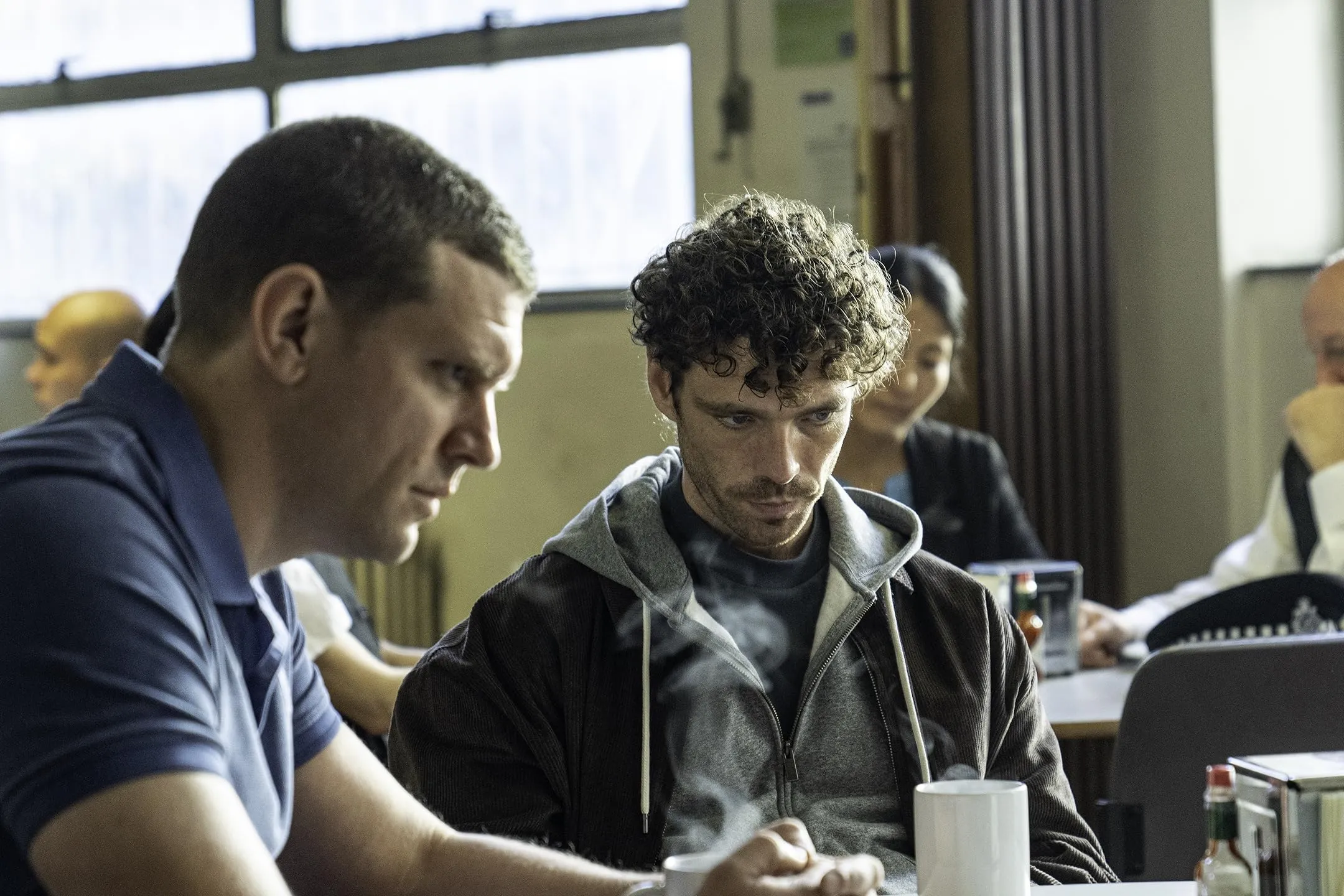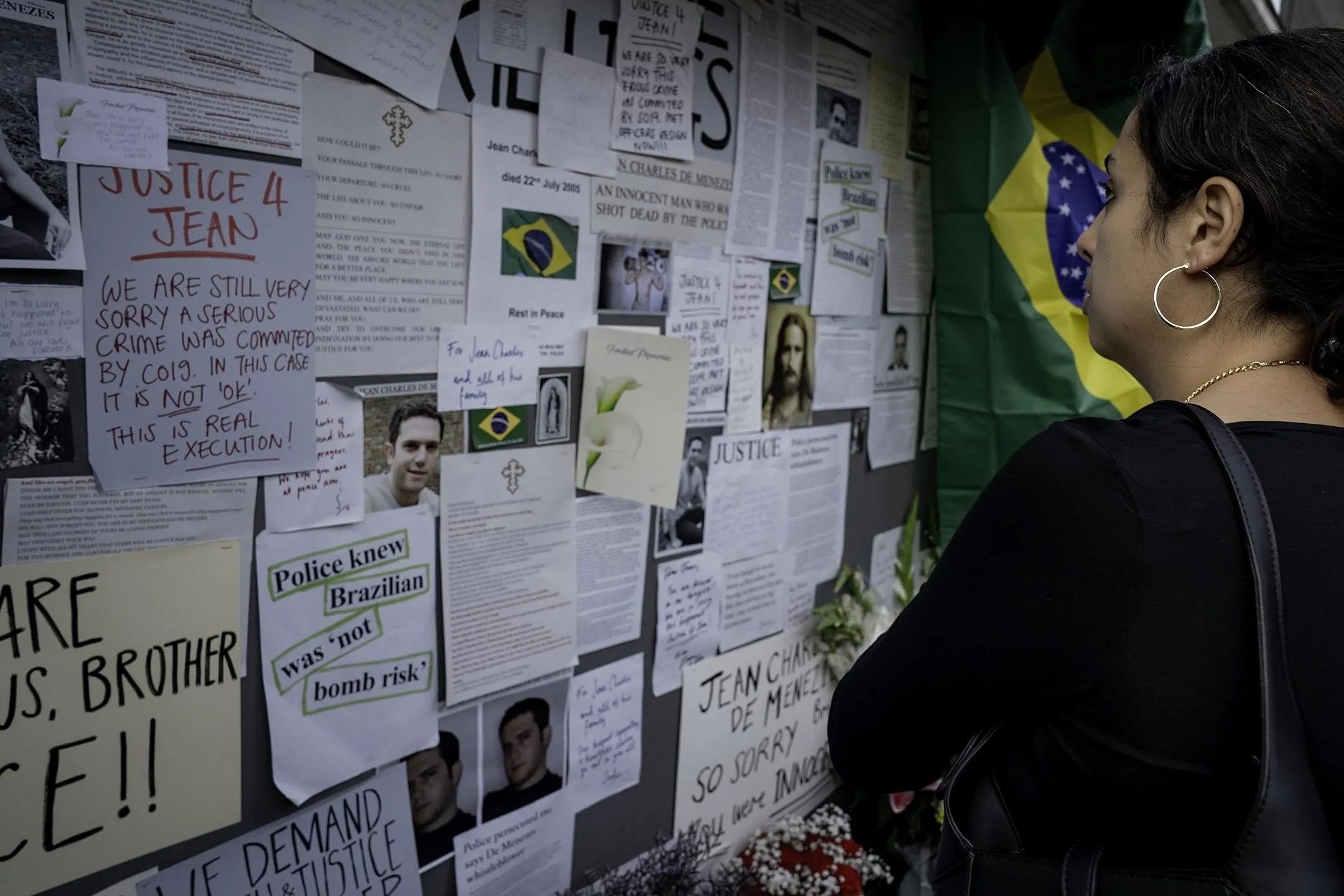From its first moments on Disney+, the four-episode Suspect transforms familiar true-crime tropes into a study of identity and institutional failure. Jeff Pope structures the narrative with precise economy: two episodes build toward the pivotal 22 July 2005 sequence, and the remaining installments trace the fallout like an inquiry unfolding in real time. This format echoes the discipline of parallel cinema in India, where stories of individual lives reflect broader social fractures.
Against the backdrop of the 7 July London attacks and the subsequent copycat bomb plot, the series anchors itself in the fate of Jean Charles de Menezes. A young Brazilian electrician, he emerges as an everyman caught in a tidal wave of fear and miscommunication. There’s no melodrama here—only the stark contrast between routine morning rituals and the rapid escalation within the surveillance unit.
The Stockwell station shooting is staged with the raw immediacy of handheld cinematography, each camera angle underscoring the tension of “point-blank, seven shots.” By weaving archival news clips into the dramatized scenes, Pope channels documentary realism akin to Bollywood’s resurgence of vérité styles. The result is a hybrid approach that honors factual integrity while harnessing cinematic tools—edited jump cuts, diegetic score swells, and symbolic framing of empty train carriages—to invite global audiences into a singular moment of tragedy.
Mapping the Motion: Structure and Pace
Suspect’s four-episode architecture balances methodical build-up with a devastating midpoint climax. In Episode 1, director Chris Jones immerses us in the aftermath of 7 July 2005, intercutting jittery crowd shots and news footage to evoke national panic—an approach reminiscent of parallel Indian films like Black Friday, which used archival clips to ground fiction in real terror. The copycat cell narrative weaves through this episode, planting seeds of dread without revealing its full horror.
Episode 2 shifts into procedural gear: surveillance teams coordinate tailing Jean Charles de Menezes, their radios crackle with urgency, and handheld cameras ratchet up tension as they storm Stockwell station. The shock-and-awe shooting sequence lands with the force of a Mumbai police raid in a Bollywood thriller—stark, rapid, and without a hint of melodrama.
Episodes 3 and 4 move into the denser terrain of institutional fallout. Here, the pacing tilts toward expository dialogue and boardroom exchanges, recalling the sober rhythms of Indian courtroom dramas like Court. Flashbacks to the would-be bombers punctuate the timeline, offering thematic counterpoints to the Met’s internal wrangling. Archival inserts of press conferences reinforce factual authenticity, while occasional family-scene vignettes inject much-needed emotional counterweight.
Suspect embraces a largely linear timeline—each beat follows directly from the last—yet thematic detours into the bombers’ backstory enrich the narrative tapestry. These detours function like the non-linear edits in Bollywood’s Ship of Theseus, inviting viewers to connect cause and effect across parallel threads.
The series truly excels at slow-burn tension: early episodes drip-feed anxiety through procedural detail, immersing audiences in the high-stakes atmosphere of post-7/7 London. The mid-season climax is executed with clinical precision, delivering a visceral jolt. However, the denouement threatens to stall under the weight of inquiry scenes and political maneuvering. To counteract this lull, the writers sprinkle in family interactions and Lana Vandenberghe’s whistleblower leaks—subplots that recapture narrative momentum.
Overall, this structure mirrors a careful cinematic choreography: a gripping ascent to crisis followed by a reflective descent. Its main challenge lies in maintaining dramatic drive once the central shock has occurred, but strategic emotional beats and thematic flashbacks keep the rhythm alive.
Portraits Under Pressure: Character Arks and Performances
At the heart of Suspect lies Edison Alcaide’s portrayal of Jean Charles de Menezes, which quietly channels the intimacy of parallel cinema’s focus on everyday life. In scenes of shared breakfast banter and cellphone chats with his mother, Alcaide invites viewers into Menezes’s unremarkable yet tender routines. His measured body language—stooped shoulders, tentative glances—speaks volumes once the firearms unit converges, echoing how Satyajit Ray’s heroes communicate inner turmoil without grand speeches.
Opposing him are the Met’s top brass, rendered with contrasting flavors of ambition and anxiety. Conleth Hill’s Sir Ian Blair combines a faux joviality with poorly concealed panic—like a Bollywood antagonist forced into a tragic dramatic arc—revealing a man more invested in spin than strategy.
Emily Mortimer’s Cressida Dick complements this with brittle formality: her clipped directives and silences resonate like the tightly wound matriarch in a family drama, yet here the stakes are institutional rather than domestic. Their exchanges, often framed in shadowed command rooms, underscore the gulf between public duty and personal preservation.
Russell Tovey and Laura Aikman bring essential moral counterweights. Tovey’s Brian Paddick, akin to the principled lawyer archetype in courtroom films such as No One Killed Jessica, offers terse private reproaches instead of public posturing. Aikman’s Lana Vandenberghe channels whistleblower courage familiar from The Kashmir Files’ truth-tellers—her trembling voice as she leaks critical evidence underscores the personal cost of speaking out.
The supporting ensemble—firearms officers whose split-second choices are filmed in close-up, the hunted bombers whose silent, furtive glances inject dread, and forensics lead Cliff Todd—adds texture to the institutional tapestry.
Family vignettes and command-room collisions form the series’ emotional nucleus. A single-shot sequence of Menezes’s mother pleading in Portuguese, Paddick’s whispered “We got this wrong,” and Michael Mansfield’s courtroom crescendo all stand out as moments when performance and story fuse, affirming Suspect’s power to convey both personal tragedy and systemic failure.
Framing Fear and Memory: Visual Palette and Soundscapes
Suspect employs a deliberate visual strategy that mirrors the dual worlds it inhabits. Tube sequences unfold in muted grays, the harsh fluorescents and metal surfaces drained of warmth, while scenes in Brazil glow with golden sunlight and verdant backdrops. This chromatic shift recalls the vérité impulse of Mumbai’s Black Friday, where real footage blends into fiction, grounding the drama in tangible atmospherics.
Handheld cameras dominate the action moments, their jittery movements conveying urgency and claustrophobia as armed officers surge through Stockwell station. In contrast, command-room and inquest scenes embrace static wide frames—each shot composed like a stage, emphasizing institutional coldness and the distance between decision-makers and the street. Close-ups punctuate key exchanges, isolating faces in tight focus so that every twitch or glare carries moral weight, much like the intimate framings in Court that spotlight individual conviction against systemic forces.
Jeff Pope’s direction balances restraint with shock. Violence is suggested through sudden cuts and the echo of gunfire rather than lingering gore, letting silence—and ambient noise—do the heavy lifting. The rumble of trains, distant sirens, even the hushed whispers of an inquiry room form a tense sound collage, evoking Mumbai’s overloaded public spaces in films such as Newton, where every creak or murmur intensifies suspense. Pacing shifts sharply at the shooting: one instant, time slows to the drip of a malfunctioning CCTV clock; the next, edits snap to the aftermath, forcing viewers to process trauma in real time.
Production design nails 2005 London Underground authenticity. Signage fonts, ticket-barrier models, and CCTV casings feel lifted from station archives. Period-accurate uniforms—stiff firearms-unit gear, plainclothes bomber disguises—anchor the narrative in its era. Across continents, the Brazil funeral set is equally meticulous: mourners in light cottons, tropical foliage framing an open-air procession, sunlight filtering through palms to underscore cultural specificity.
Sound design weaves sparse, unnerving score swells only where emotion demands it. Diegetic elements—radio chatter during surveillance, press conference mics, a family’s living-room TV—immerse us in the machinery of fear and reportage. Music cues arrive subtly: a lone woodwind behind a mourning scene, or a low percussion beat under procedural revelations, reinforcing shifts between personal grief and institutional inquiry.
Truth Under Siege: Power, Prejudice and Panic
Suspect exposes how institutional self-preservation can override both ethics and facts. Early scenes show how a single misheard detail morphs into official Met statements, triggering a chain of misinformation that spreads faster than corrections. This pattern echoes moments in Indian parallel films—such as Court—where systemic denial shields authorities from scrutiny. Here, every press briefing and internal memo underscores a willingness to protect reputation at the expense of a man’s life.
Race and identity become fault lines in the narrative. Jean Charles’s “olive skin” places him in a no-man’s land between suspect profiles, yet officers insist he matches descriptions of darker-skinned bombers. This miscasting recalls real-world biases seen in global audiences’ reactions to films about marginalized communities. The series doesn’t shy from showing how a few eyewitness errors can crystallize into unshakeable lies, shaping public opinion through the prism of fear.
Rolling news networks emerge as unlikely collaborators in this drama. Live broadcasts amplify unverified claims of vaulted barriers and hidden bombs, while official spokespeople echo those errors—demonstrating how media and power can collude. When Lana Vandenberghe’s whistleblower leaks surface—captured in tense, handheld close-ups—the series celebrates the disruptive force of insider testimony, much like revelatory moments in Bollywood’s Madras Cafe, where truth springs from unexpected sources.
The trauma of 7/7 lingers like a wound. Londoners’ post-attack anxieties fuel every tactical decision, creating an ethical tug-of-war between public safety and civil liberties. This tension mirrors debates in other democracies balancing counterterror measures with human rights, a theme increasingly explored in international cinema.
By tracing these threads, Suspect poses urgent questions about police oversight and surveillance ethics. Its lessons echo in later incidents worldwide, from mistaken raids to unchecked data gathering—reminding viewers that unchecked authority, once unleashed, can never be fully contained.
Echoes of Grief: Emotional Currents and Viewer Investment
Suspect pulses with both empathy and righteous anger, inviting viewers to feel the full weight of one life cut short. Edison Alcaide’s quiet gestures—lingering on Jean Charles’s morning ritual, his affectionate phone calls home—draw us into a world shattered in an instant. As the narrative unfolds, our shock mirrors the growing horror in the faces of officers who realize too late they have killed an innocent man.
Certain sequences lodge themselves in memory: the shooter’s POV crashing through the turnstiles, where every footstep sounds like a death sentence; the image of an empty carriage, Jean Charles’s body framed beneath harsh lights; and the Brazilian funeral procession, a tableau of sunshine and sorrow that resonates with diaspora communities worldwide. These moments underscore how a single tragedy ripples far beyond one station platform.
The series balances moments of quiet despair—Brian Paddick’s tense exhalations in a silent hallway—with bursts of high drama, such as Lana Vandenberghe’s trembling revelation to the press. Viewers should prepare for graphic violence and scenes of institutional betrayal, tempered by genuine human connection.
To keep engagement high, Suspect plants lingering questions at every turn: How did misinformation become gospel? Who bears responsibility when error is systemic? Emotional hooks—the mother’s anguished plea in Portuguese, the whistleblower’s moral gamble, Michael Mansfield’s courtroom challenge—ensure that audiences remain invested long after the final credits roll.
Guidance for the Full Review
In crafting the full review, foreground Suspect’s blend of visceral tension and deep empathy. Highlight how the midseason shooting sequence delivers a jolt of urgency, while scenes of Jean Charles de Menezes’s daily routine and family interactions restore his humanity—an approach that echoes parallel cinema’s care for individual stories amid wider crises.
Maintain an empathetic yet analytical voice when addressing uneven pacing after the central incident. Critically discuss moments where expository detail slows momentum, while praising the series’ commitment to factual integrity and moral inquiry.
Draw attention to cinematic choices—the muted London palette versus the sunlit Brazilian funeral, the tactile handheld camera work and static institutional frames—and note their resonance with global film trends, including Bollywood’s use of symbolism and colour to convey emotional stakes.
Focus key takeaways on police accountability, the power of whistleblower testimony, and the ongoing relevance of surveillance ethics. Recommend Suspect for true-crime enthusiasts and viewers seeking justice-centered narratives, as a standout drama that marries craft with conscience.
Full Credits
Director: Paul Andrew Williams
Writers: Jeff Pope
Producers: Kwadjo Dajan
Executive Producers: Jeff Pope, Paul Andrew Williams, Kwadjo Dajan, Lee Mason
Cast: Edison Alcaide, Daniel Mays, Conleth Hill, Russell Tovey, Max Beesley, Emily Mortimer, Laura Aikman, Alex Jennings, Rodrigo Ternevoy
The Review
Suspect: The Shooting of Jean Charles De Menezes Season 1
Suspect is a meticulously reconstructed true-crime drama that marries documentary realism with cinematic flair. Its midseason climax punches with raw emotion, and strong performances restore Jean Charles de Menezes’s humanity, even as some procedural stretches test its momentum. A compelling exploration of accountability and grief.
PROS
- Powerful reenactment of the Stockwell shooting
- Edison Alcaide’s quietly moving portrayal
- Authentic 2005 London and Brazilian settings
- Smart blend of archival footage and scripted drama
- Sharp focus on accountability and moral questions
CONS
- Momentum dips in episodes three and four
- Expository investigation scenes feel dense
- Emotional peaks uneven post-climax
- Supporting characters underdeveloped
- Some procedural moments feel familiar









































